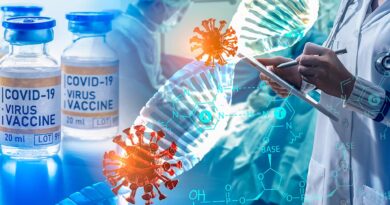Science communication and covid-19: call out misinformation, but do so respectfully and objectively
Dear Editor
The editorial by Bhopal and Munro provides important commentary on scholarly communication in the age of social media and covid-19 [1]. The pandemic has truly tested the limits of public health communication, dominating global scientific discourse and thrusting many clinicians and academics into incredibly complex and nuanced conversations regarding evidence. For many, it has been a crash course in epidemiology, evidence-based medicine and the wider socio-political aspects of health and disease. Crucially, commentators may lack experience in the dissemination of biomedical research and the communication of caveats, limitations and uncertainty. This sets the stage for misinterpretation and misrepresentation.
As the authors of this editorial note, social media platforms like Twitter “value brevity over nuance” [1]; Tweets can be disseminated rapidly without due deliberation. Such styles of communication contrast significantly with the considered and detailed response one might see in a ‘letter to the editor’. Pausing and reflecting before sharing is crucial. The potential perils of rushed and impassioned communication reminds me of the importance of pausing and proof-reading before sending an email in response to criticism or disagreement.
Bhopal and Munro state: “Labelling different interpretations of evidence as ‘disinformation’ is inappropriate” [1]. I agree that a Tweet containing an honest misinterpretation of evidence should not be labelled as ‘disinformation’ (false or inaccurate information shared intentionally). However, it may be appropriate to label such a Tweet as ‘misinformation’ (false or inaccurate information shared regardless of intent). In fact, it may be our duty to do so, as advocates in the fight against medical misinformation [2]. This is particularly important in cases where individuals in positions of trust, for example healthcare professionals, propagate dangerous misinformation [3].
Addressing the covid-19 infodemic is a global public health priority. Fighting misinformation has been cited as an important countermeasure in the World Health Organisation framework for managing the covid-19 infodemic [4]. Healthcare professionals and the wider biomedical research community must strive to set an example regarding scholarly communication by engaging in carefully considered, impartial scientific discourse. The correction of misinformation should be done so respectfully and objectively, with the overall goal of educating not lambasting.
1. Bhopal R, Munro APS. Scholarly communications harmed by covid-19. BMJ. 2021 Mar 22;372:n742. https://doi.org/10.1136/bmj.n742
2. Trethewey SP. Strategies to combat medical misinformation on social media. Postgraduate Medical Journal 2020;96:4-6. https://doi.org/10.1136/postgradmedj-2019-137201
3. Rosa Ellis, Dominic Kennedy. Kate Shemirani: antivax leader is banned nurse who fears 5G network. The Times. 12 September 2020. Available at: https://www.thetimes.co.uk/article/suspended-nurse-kate-shemirani-become…
4. Tangcharoensathien V, Calleja N, Nguyen T, et al. Framework for Managing the COVID-19 Infodemic: Methods and Results of an Online, Crowdsourced WHO Technical Consultation. J Med Internet Res 2020;22(6):e19659. https://doi.org/10.2196/19659


